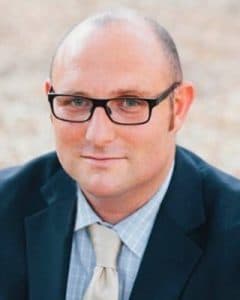Psychologist James Fortman
How did you get into this field?
I earned my bachelor’s degree from UC Berkeley in cognitive science. I initially thought I might continue with experimental work in attention and memory, but decided instead to pursue clinical work. I enrolled in a graduate program in clinical psychology and during my education learned of the field of clinical neuropsychology which combines my background in the brain sciences with clinical work with patients. It has been a perfect fit.
What do you love about the work?
I love meeting and interacting with patients one-on-one. I derive a great deal of satisfaction from helping individuals understand what is going on with them cognitively and psychiatrically and to guide them to the resources and services that will help them be successful. I find it particularly rewarding when I can help someone put a name to their struggles and experiences by providing a diagnosis. Often, this helps to normalize their experience and allows them to begin to come to terms with what they are dealing with, whether it be ADHD, a learning disability, or the early stages of a neurodegenerative condition.
Why do people hire you?
I have a diverse set of skills and background. My specialization in neuropsychology means I have experience with diagnosis and treatment planning for people with neurodevelopmental and acquired neurological conditions. I have experience with a wide range of patient populations from children and adolescents to older adults and also college students, veterans, and forensic population. I’ve also worked in various settings including elementary schools, brain injury center, inpatient rehabilitation services, vocational rehabilitation, and outpatient clinical practice.
How do you feel about study skills?
For starters, I wish I had developed some well before I attended UC Berkeley. I was at a definite disadvantage not having a set of organizational tools and studying techniques to help manage my coursework. I think study skills are particularly helpful with the LD/ADHD population I work with and are in some ways similar to the coping and adaptive strategies I recommend for those patients. I think study skills can provide a sort of scaffolding from which students can then tackle the content of their coursework. In addition, study skills can instill confidence in the students’ ability to learn, something which is often lacking in individuals with LD/ADHD. I think it also can help curtail the anxiety that can often be associated with those conditions.
What’s your favorite piece of advice to give to students?
Not everyone develops at the same rate and/or learns the same way. I talk about how, in some ways, it is advantageous to struggle academically earlier in one’s education as you can then learn to develop study skills at an earlier age. The alternative is to skate by through primary and secondary school and get to college without a clue how to study.


